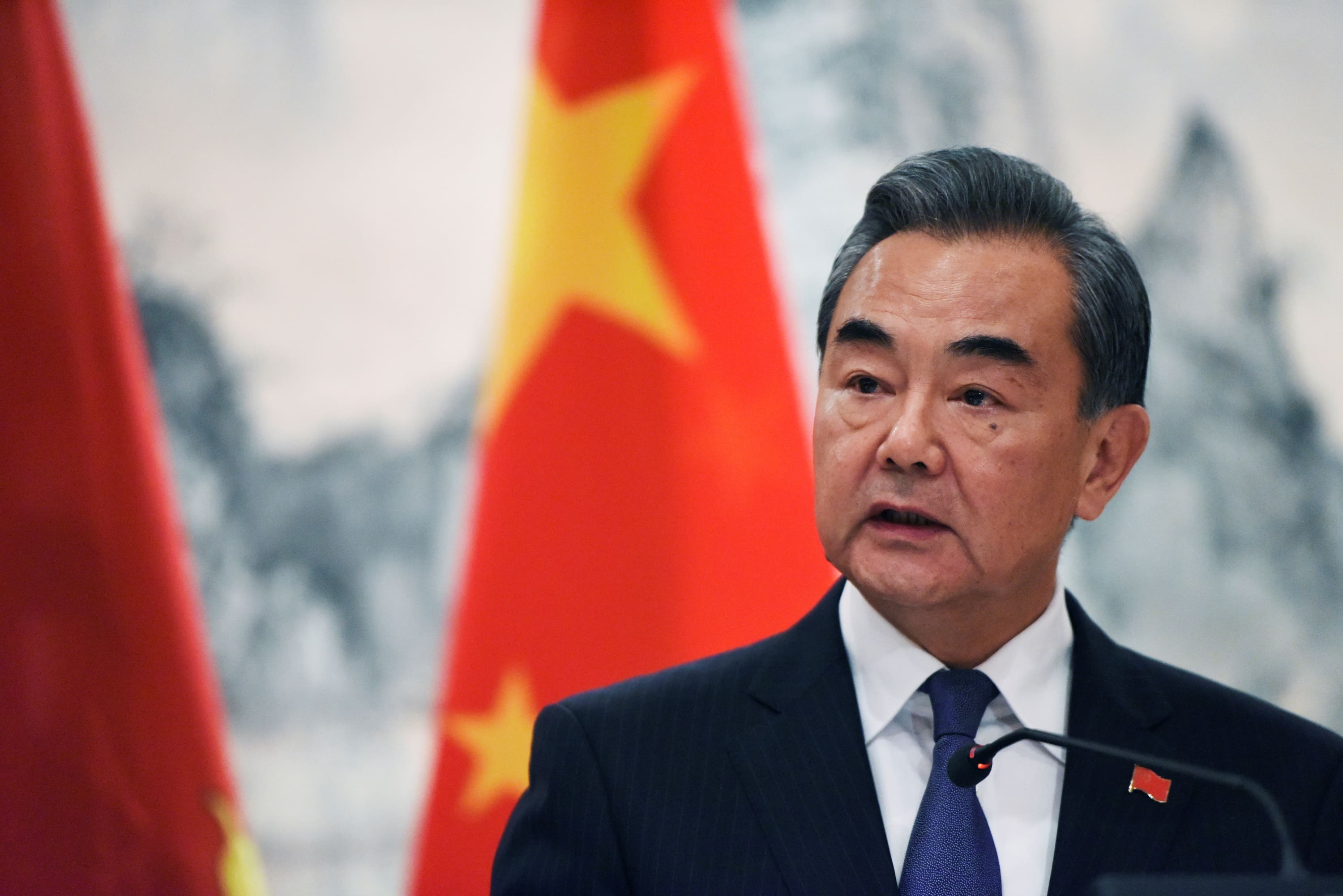Chinese Foreign Minister Wang Yi speaks at a news conference after restoring diplomatic ties with Kiribati on the sidelines of the United Nations General Assembly in New York, U.S. September 27, 2019.
Mark Kauzlarich | Reuters
BEIJING — China’s Foreign Minister Wang Yi on Monday called on the new U.S. administration to stop the “suppression” of Chinese technology companies, as he laid out conditions for U.S.-China cooperation going forward.
Citing national security concerns, former U.S. President Donald Trump sanctioned dozens of Chinese companies in the last three years.
Chinese telecommunications giant Huawei is one of the most prominent companies that suffered from those orders, falling from the number one smartphone vendor globally to sixth place last year as a result of the sanctions.
China would like the U.S. to remove tariffs and sanctions on companies, and “abandon irrational suppression of China’s technological progress, so as to create necessary conditions for China-U.S. cooperation,” Wang said, according to an official English translation shared by the foreign ministry.
Wang also called for the U.S. to support international Chinese students and remove restrictions on cultural groups and media outlets in America. He was speaking at a forum in Beijing with the theme “Bringing China-U.S. Relations Back to the Right Track.”
Tensions between the two countries accelerated under the Trump administration, which sought to use levies and blacklists to address longstanding business complaints about China’s lack of intellectual property protection, requirements for forced technology transfer and dominance of the state in markets.
While it remains unclear what exact action U.S. President Joe Biden might take, he has maintained a firm tone since taking office about a month ago.
Biden told European allies in a speech Friday that “we must prepare for long-term strategic competition with China.”
Last week, Treasury Secretary Janet Yellen said Trump-era tariffs would remain in place and that any changes would depend on China’s adherence to trade deal commitments.
Policy red lines, and areas for cooperation
Biden is expected to put greater emphasis on human rights-related issues such as Hong Kong, Xinjiang and Tibet.
Wang reiterated Monday that those regions are part of China’s “internal affairs” and that relations with the U.S. can only improve if Beijing’s position is respected.
Chinese Ambassador to the U.S., Cui Tiankai, also said Monday that Beijing and Washington must define the boundaries of their foreign policy, noting that China’s red line issues include Taiwan, Xinjiang and Tibet, according to Reuters.
Leaders of both countries remain open to cooperation in some areas, such as reducing carbon emissions.
Wang said the two nations can work together on tackling the coronavirus pandemic and supporting global economic recovery, and emphasized that Beijing remains supportive of American businesses in China.
Analysis released last week from the U.S. Chamber of Commerce, together with onsulting firm Rhodium Group, found that if the U.S. sells half its direct investment in China, American investors would lose $25 billion a year in capital gains. The report called for targeted, rather than sweeping, policy measures against China.
